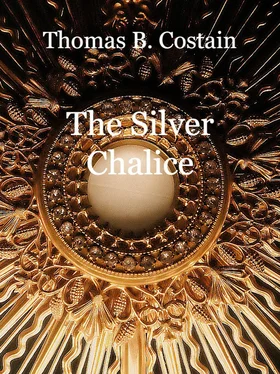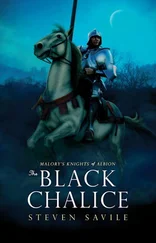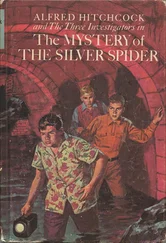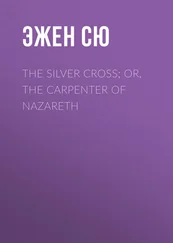Thomas B. Costain - The Silver Chalice
Здесь есть возможность читать онлайн «Thomas B. Costain - The Silver Chalice» — ознакомительный отрывок электронной книги совершенно бесплатно, а после прочтения отрывка купить полную версию. В некоторых случаях можно слушать аудио, скачать через торрент в формате fb2 и присутствует краткое содержание. Жанр: unrecognised, на английском языке. Описание произведения, (предисловие) а так же отзывы посетителей доступны на портале библиотеки ЛибКат.
- Название:The Silver Chalice
- Автор:
- Жанр:
- Год:неизвестен
- ISBN:нет данных
- Рейтинг книги:5 / 5. Голосов: 1
-
Избранное:Добавить в избранное
- Отзывы:
-
Ваша оценка:
- 100
- 1
- 2
- 3
- 4
- 5
The Silver Chalice: краткое содержание, описание и аннотация
Предлагаем к чтению аннотацию, описание, краткое содержание или предисловие (зависит от того, что написал сам автор книги «The Silver Chalice»). Если вы не нашли необходимую информацию о книге — напишите в комментариях, мы постараемся отыскать её.
The Silver Chalice — читать онлайн ознакомительный отрывок
Ниже представлен текст книги, разбитый по страницам. Система сохранения места последней прочитанной страницы, позволяет с удобством читать онлайн бесплатно книгу «The Silver Chalice», без необходимости каждый раз заново искать на чём Вы остановились. Поставьте закладку, и сможете в любой момент перейти на страницу, на которой закончили чтение.
Интервал:
Закладка:
One incident that occurred on the street below his post of observation always remained vividly in his memory. A vendor of sweetmeats had approached from the direction of the Omphalos, carrying his tray on his head. There was something about the man, an openness of eye and an almost benign cast of feature, that seemed out of keeping with the lowliness of his occupation. Basil, sensing this contrast, watched him closely, wondering about him and speculating as to his nationality. When the vendor reached a point immediately beneath, he was stopped by a customer. Looking down directly on them, the boy witnessed something that caused him to catch his breath. The hand of the vendor, raised ostensibly to make a selection from the tray, stopped instead to draw a piece of paper from a space immediately under the sweetmeats. The paper passed from one to the other and vanished into the sleeve of the purchaser so quickly that no pair of eyes save that of the watcher above could have become aware of what was happening. A small copper coin was tendered and accepted and the pair separated, to be lost at once in the thick traffic of the street.
Basil said to himself, “I am sure they are Christians.”
He was recalling a visit he had paid with his real father when a boy of perhaps six years to a synagogue in the part of the city called Ceratium. It had once been handsomely adorned and a curious faith had been preached there openly, based on the teachings of someone called the Christ who had been a Jew. At the time when Theron, out of curiosity, took his youngest son, there had been a change of attitude on the part of the Roman authorities. The boy, who had seen multitudes of people bowing with covered heads before great bronze statues of the gods in the Gardens of Daphne, was astonished to see that the Christians held their heads up high as though watching something infinitely wonderful in the air above them. They sang together, simple airs about love and forgiveness, and their eyes were filled with so much content that Theron had whispered to his son: “These be strange people. But it is a strangeness about which we should know more.”
A small man with a short blunt beard preached to them. Sometimes his voice was as shrill as the call of a bugle; sometimes it was deep like the thresh of waves over a stone reef; always it drew his listeners to him. His deep-set eyes had seen the miraculous things of which he spoke. He was not of Antioch, for his speech had more of the slurring note of the Romans. There were whispers about him in the audience which coupled the names of Paul and Tarsus.
The room was as still as a tomb in the rocks of sepulture while he spoke. Theron did not move as much as a hair of his bushy head. Once his hand tightened on the shoulder of the boy and he whispered, “My son, my son, can it be there is only one God and that He is a God of kindness and light?”
The discourse, however, was far over the head of a boy of six. Ambrose’s attention became riveted instead on a second man, who stood off to one side of the gathering. He had a broad brow and a kindly eye and a smile of such gentleness that each strand in his great red beard seemed to curl in amiability. He was watching, familiarizing himself no doubt with the new faces in the gathering.
Theron was full of what they had witnessed when they reached the crowded room in the Ward of the Trades that served as home to his brood. “I have heard a great man deliver the most amazing message,” he said, his eyes still veiled and withdrawn.
His wife had dampened his enthusiasm immediately. “Christians!” she said scornfully. “They are a bad lot. I saw one stoned to death in my native village. It was a woman, and I threw a stone myself. That is what happens to people who become Christians!”
“But the man Jesus performed miracles,” protested Theron. “Those who follow Him cast out devils also and cause the lame to walk and the blind to see.”
“Miracles!” scoffed his wife. “The face of that woman had turned black when I cast my stone. Why wasn’t there a miracle to save her? There is one Simon the Magician who can perform miracles as well. They are all tricks.”
They never returned to the synagogue, but one thing kept the meeting in Basil’s memory. He recalled the face of the man with the red beard. It was still clear in his mind even when the contour of his own father’s features had become dim and uncertain. What made it stay was a hint there of seeing things which other eyes missed, of hearing sounds, perhaps of music, in the stillest air.
There had been something of this same look on the face of the vendor of sweetmeats.
His hands were never idle while he sat in the latticed aliyyah and watched the rich spectacle below. He used bits of charcoal to make sketches on papyrus or on discarded fragments of cloth, catching with a few deft strokes the proud folds of a toga or the dignity of a red-and-white nomadic turban, the furtive leer of an unshaven beggar or the animal grace of a gladiator from the amphitheater that great Caesar himself had built. Later he would carry the sketches back to his room and mold figures in damp clay from the best of them.
Ignatius joined him once at his post of observation, seating himself with a hint of apology on the colored tiling of the floor. He studied the sketches with which the boy had surrounded himself, making a clucking sound with his tongue that conveyed approval.
“My son,” he said, lifting up for closer inspection a figure done in wood of a slouching, bowlegged thief, “you have the gift the gods so seldom bestow. There is in this one the strong touch of Scopas. Sometimes I have seen in your work the ease and grace of Praxiteles, but this one is all Scopas; and for that reason I like it much. And yet you have never seen any of the work of these truly great men.” He paused and indulged in a smile at the surprise on the face of the boy. “You did not guess how much I know about the glorious art of our race. You hear me railing and browbeating in that room of mine that is as round as the moon and you see me at meals filled with the troublesome problems of the day. Ah, my son, the glory that is so nearly lost to our race fills my mind oftener than the price of olive oil.” He nodded his head slowly after several moments of reflection. “One day it will be necessary for you to learn something of the affairs of Ignatius the merchant so you will not be at a loss when the reins pass into your hands. But there is plenty of time for that. At the moment it is my earnest desire that you continue as you are doing.”
There was a long pause then, and Basil knew that his father had something more to say and was finding it hard. Finally, in a defensively brusque manner, the merchant asked: “And what of you, my son? Are you happy here?”
The boy had no hesitation in answering, “Yes, I am very happy.” Then he added, using the word for the first time since he had come to live in the high white palace, “Yes, Father.”
Ignatius nodded his head several times, and it was clear that he was quite moved. “You are a good boy, my Basil,” he said. “I think you are going to be worthy of the name I gave you. He was a truly great man, my father. When you get older I will tell you many things about him that will show what an honor it was for you when I gave you his name. Yes, my son, we shall have many talks.”
Once when Basil was bathing in his sunken tub, the merchant came in and watched. It was always a matter of embarrassment to the boy that he was not permitted to take a bath by himself. Servants would always be about, some of them girls, to hold towels and pieces of soap (he had never lost his delight in having plenty of soap that gave so much lather and smelled so enticing), and he would have to drop off his tunic and the linen garment he wore next to his skin and then step naked into the water under the close observation of all these pairs of eyes. There were four attendants in the room on this occasion when Ignatius paid his visit.
Читать дальшеИнтервал:
Закладка:
Похожие книги на «The Silver Chalice»
Представляем Вашему вниманию похожие книги на «The Silver Chalice» списком для выбора. Мы отобрали схожую по названию и смыслу литературу в надежде предоставить читателям больше вариантов отыскать новые, интересные, ещё непрочитанные произведения.
Обсуждение, отзывы о книге «The Silver Chalice» и просто собственные мнения читателей. Оставьте ваши комментарии, напишите, что Вы думаете о произведении, его смысле или главных героях. Укажите что конкретно понравилось, а что нет, и почему Вы так считаете.












